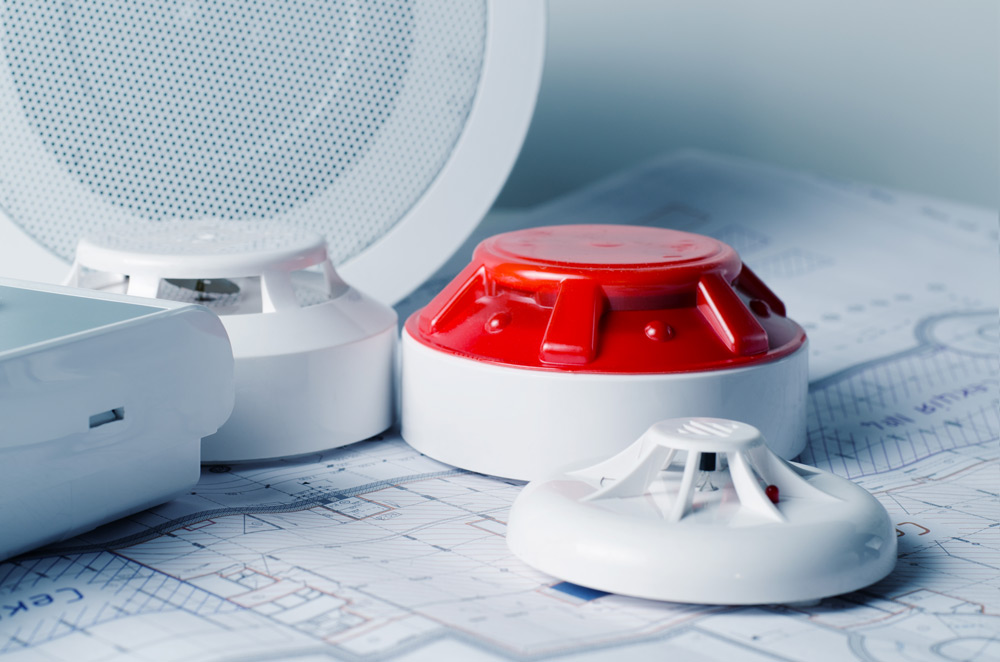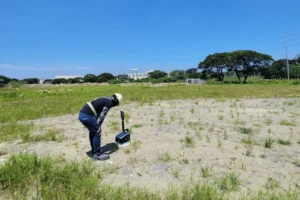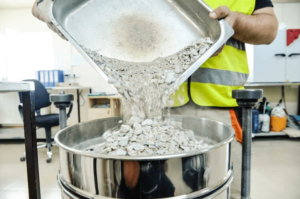Fire hazards remain one of the top concerns for organizations operating in sectors such as marine transport, oil and gas, and offshore operations. Choosing the correct fire alarm system suppliers means having the peace of mind that the protection measures in place are reliable and tested under demanding conditions. Companies in these fields depend on suppliers who not only offer quality products but also understand the critical nature of their operations.
Understanding Fire Alarm Systems
At its core, a fire alarm system is designed to detect early signs of fire and alert occupants to take immediate action. These systems combine multiple components, including smoke detectors, heat sensors, control panels, and audible/visual alarms. The interconnected nature of these components ensures that even if one part fails, the overall system continues to function effectively.
Fire alarm system suppliers are responsible for offering solutions that integrate seamlessly with the infrastructure of high-risk environments. Their products undergo rigorous testing to verify their reliability and efficiency. From traditional smoke detectors to advanced multi-sensor devices, these suppliers provide equipment that can detect fire hazards at the earliest stage, reducing potential damage and safeguarding human lives.
Market Overview for Fire Alarm System Suppliers
The demand for fire safety solutions has grown steadily over recent years, particularly within industries exposed to heightened fire risks. Fire alarm system suppliers must continually innovate and offer products that comply with strict safety standards and regulations. Their expertise is crucial for industries where the cost of failure is high.
Several factors drive market growth for these suppliers:
- Strict Regulatory Requirements: Government regulations and industry standards mandate the installation of certified fire detection systems in high-risk facilities.
- Technological Advancements: Continuous improvements in sensor technology and alarm systems have made fire detection faster and more accurate.
- Increased Focus on Safety: Companies invest significantly in safety measures to protect their workforce and critical infrastructure.
Fire alarm system suppliers work closely with manufacturers and certification bodies to ensure that every piece of equipment they provide meets or exceeds industry requirements. Their ability to adapt to evolving market conditions makes them a vital part of fire safety strategies worldwide.
Applications in High-Risk Industries
Marine Settings: In marine environments, safety is paramount due to the confined spaces and the presence of highly combustible materials. Fire alarm system suppliers provide specialized systems designed for ships, ports, and harbors. These systems are built to withstand the harsh conditions at sea, including high humidity, saltwater exposure, and mechanical vibrations.
Fire alarm systems installed on vessels are required to detect fire hazards promptly and activate alarms to initiate emergency protocols. Suppliers offer equipment that minimizes the need for manual inspections, ensuring that fire detection remains reliable even in rough conditions. Their products are often designed to be rugged, easy to install, and require minimal maintenance—features that are crucial for marine applications.
Oil, Gas, and Offshore Sectors: Facilities in the oil, gas, and offshore industries operate in environments where the risk of fire is ever-present due to the flammable nature of the materials involved. The complexity of these operations demands fire alarm systems that are not only highly sensitive but also capable of covering large and segmented areas.
Fire alarm system suppliers in these sectors provide advanced detection technologies that monitor various parameters such as smoke density, heat, and gas concentration. The systems are built to perform in extreme conditions, including high temperatures and corrosive environments. Suppliers also offer integrated solutions that combine fire detection with emergency communication systems, ensuring that personnel can respond quickly in the event of an incident.
The collaboration between fire alarm system suppliers and industry leaders has led to products that are specifically engineered for these high-risk settings. Regular testing and maintenance of these systems are essential to ensure that every component functions as intended during an emergency.
Advancements in Fire Alarm Technology
Innovation in fire alarm technology has resulted in significant improvements in detection speed and accuracy. Modern systems now incorporate advanced sensors and intelligent control units that can identify fire hazards with minimal false alarms. This precision is especially important in environments where false alerts can disrupt operations and create unnecessary panic.
One of the notable developments in fire safety is the introduction of comprehensive testing kits. These kits, offered by leading fire alarm system suppliers, allow maintenance teams to verify the functionality of detectors quickly. The testing tools cover a wide range of equipment, from traditional smoke and heat detectors to multi-sensor and aspirating smoke detection (ASD) systems.
By providing complete testing solutions, fire alarm system suppliers help organizations ensure that their safety systems are always in prime condition. Regular testing is vital not only for compliance with safety standards but also for maintaining the trust that operators place in their fire safety infrastructure.
Leading Manufacturers and Partnerships
A significant factor that sets apart top fire alarm system suppliers is their collaboration with world-renowned manufacturers. Partnerships with industry leaders such as Johnson Controls, Thorn Security, and Tyco ensure that the products offered are built with high-quality components and cutting-edge technology. These collaborations enable suppliers to provide systems that are reliable, durable, and compliant with international safety standards.
Manufacturers invest heavily in research and development, producing equipment that meets the rigorous demands of high-risk sectors. Fire alarm system suppliers, by aligning themselves with these companies, guarantee that their customers receive products that have been rigorously tested and proven effective in critical situations.
Such partnerships also facilitate access to the latest technological advancements and support services. When choosing fire alarm system suppliers, customers benefit from the added assurance of knowing that they are working with a network of experts committed to advancing fire safety.
Benefits of Working with Reputable Suppliers
Partnering with reputable fire alarm system suppliers brings numerous advantages to organizations, particularly those operating in high-risk industries:
- Assured Reliability: Quality systems reduce the likelihood of false alarms and ensure that fire detection is prompt and accurate.
- Comprehensive Support: These suppliers often offer end-to-end services, including installation, maintenance, and regular testing, to keep systems operational.
- Regulatory Compliance: Trusted suppliers are well-versed in industry standards and regulations, ensuring that all installations meet the necessary legal requirements.
- Long-Term Safety: Investing in proven fire alarm systems means that organizations can safeguard their personnel and assets over the long term, reducing potential financial losses and reputational damage.
Working with established fire alarm system suppliers also means gaining access to expert advice on system design and integration. Their experience in various industries allows them to recommend solutions that fit specific operational needs, providing a customized approach to fire safety.
How to Choose the Right Fire Alarm System Supplier
Selecting the most suitable fire alarm system supplier involves careful consideration of several key factors:
- Product Quality and Certification: Ensure that the supplier offers products that have been certified by recognized safety bodies. The quality of the equipment directly affects the performance of the fire detection system.
- Technical Expertise: Choose suppliers with extensive experience in high-risk environments. Their technical know-how will be valuable in designing systems that meet your specific needs.
- After-Sales Support: Reliable customer support is crucial. Look for suppliers that provide comprehensive after-sales services, including regular system checks, maintenance, and troubleshooting.
- Customer Reviews and Case Studies: Research feedback from other organizations within your industry. Real-world success stories can offer valuable insights into the supplier’s performance and reliability.
- Customization Capabilities: Some suppliers may offer solutions that can be adapted to your unique requirements. Customization ensures that every aspect of your fire alarm system is suited to your operational environment.
- Partnerships with Renowned Manufacturers: Suppliers that work closely with established manufacturers are likely to offer higher-quality products and more reliable support services.
Taking the time to evaluate these factors can make a significant difference in the overall safety of your operations. The right fire alarm system supplier not only provides state-of-the-art equipment but also contributes to a comprehensive safety strategy.
Takeaway
The significance of effective fire detection systems cannot be overstated, especially in industries where the risk of fire is considerable. Fire alarm system suppliers deliver the essential tools needed to detect and respond to fire hazards, ensuring that safety protocols are reliable and effective.
By understanding the components and market dynamics of fire alarm systems, organizations can make informed decisions when selecting a supplier. From marine transport to oil and gas operations, the right fire alarm system supplier will offer products that are built to perform under pressure, supported by expert guidance and reliable maintenance services.
Investing in quality fire alarm systems is a strategic move that protects lives, reduces potential losses, and upholds safety standards. For companies operating in high-risk settings, collaborating with trusted fire alarm system suppliers is not just a regulatory requirement—it is a commitment to the safety and well-being of every individual on board and within their facilities.







